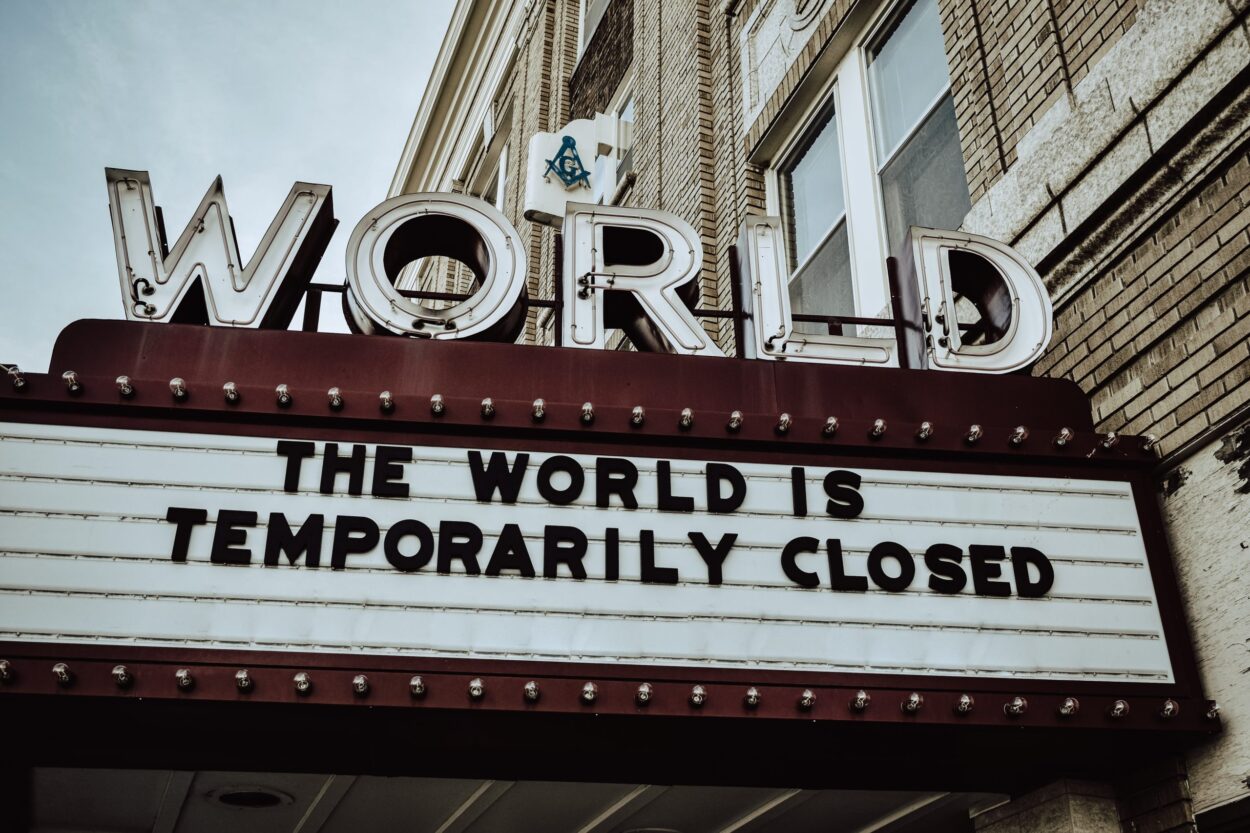The writer Ernest Hemingway famously said that there were two ways to go bankrupt: “Gradually, then suddenly.” He might also have been describing the ways life has changed during the COVID-19 pandemic. What began as minor adjustments to daily routines quickly upended them, and today almost the entire U.S. is under some level of shelter-in-place order. This has had a profound and highly visible impact on the world economy, but it is also taking a more silent toll on mental health.
As Dr. Katherine Fort, a Licensed Mental Health Counselor and Chair of Antioch University Seattle’s Clinical Mental Health Counseling (CMHC) program, explains, “From a mental health professional’s point of view, any time you see a client who’s really in isolation, that’s always a red flag for us.” Isolation can compound existing risk factors, but on its own, it also can cause real problems. Luckily, mental health professionals have identified skills that we can cultivate to help cope with the mental toll of sheltering in place. Here are six that Dr. Fort recommends.
- Form a healthy routine. This is important because within the uncertainty surrounding the pandemic, a routine can provide something stable and certain. Dr. Fort says that these “supports or touchpoints allow people to at least feel like, ‘Okay, well, did I get in my walk today, did I get in my cup of coffee today, did I get in my breathing.’ Some of these healthy things that can at least let people check off a list.” In a routine like this, it’s less important what exactly one is doing—it could be a phone call, an exercise routine, or spending time reading—and more important than the activity anchor each day. These become “positive achievements,” helping us to feel that we are doing well even in a difficult and possibly monotonous circumstance. “If somebody’s achieving some small goals every day, at least that gives some fundamental positivity to their experience that day.”
- Seek out tele-counseling. Dr. Fort says that “Folks need counseling more than ever right now, [but] the options for getting counseling are either seeing somebody over a HIPAA-secure counseling platform or the telephone.” Neither option is ideal—Dr. Fort explains that such therapy “isn’t quite the same as talking to somebody in person and does not necessarily work for all clients, specifically those in acute crisis situations”—but for most clients, tele-counseling (or tele-mental health) is superior to putting off treatment or not getting it at all. She explains that “many clients are opting to wait until this is over to get counseling support [when] they could really benefit even more from having that support right now.” Luckily, counselors and therapists across the country are quickly learning how to safely and ethically use these tools to meet with clients remotely. If you think that you might benefit from tele-counseling, Dr. Fort suggests that you seek it out.
- Develop new self-care rituals. This can seem like a one-size-fits-all prescription, says Dr. Fort, who says that “Even with our students, when we talk about self-care, they’re like, ‘Okay, okay, here you go talking about self-care again. What does that really mean?’” But it’s in asking that very question that the power of self-care really begins to reveal itself. Dr. Fort explains that “It’s really important for people to stop and ask themselves that question, because it’s not the same for everybody. It’s not a one-size-fits-all. It’s not like meditation works for everyone or yoga works for everyone.” She suggests that we try different things—“it may be playing the piano for someone who’s musically inclined, and it may be lifting weights for someone who’s athletically inclined”—and then “checkin afterward and ask, ‘Okay, how do I feel now? How do I feel now compared to an hour ago before I took my dog out?’ If I feel better, then maybe this is self-care, maybe this is something I should do again tomorrow… Whatever that is, it’s knowing that, ‘Hey, this works for me, and I feel better after I do it.’”
- Find ways to get un-stuck. Dr. Fort warns that it can be easy to get stuck in cognitive loops, obsessing over the things we can and cannot control in our lives. “That loop, what we call rumination, that loop can get stuck. Especially when someone’s trying to fall asleep, because that’s the time when you finally are reflecting on your day, thinking about the next day.” It can be a puzzle to figure out how to escape from these feelings, but Dr. Fort advertises experimenting with a wide variety of activities that can shake one out of that feeling of being stuck: getting outside for fresh air, stretching, yoga, meditation, listening to your favorite music, trying new recipes, creativity, artistic expression, dancing to loud music, and reorganizing the home. She says, “It’s the folks that continue to feel more stuck within this home-bound experience that really are struggling. So I think that if you can kind of ‘un-stick’ yourself, that’s going to be key to supporting the overall feeling of having a little bit more freedom in a time that feels very confining.”
- Try to do a “positive reframe.” This may be the hardest skill to cultivate without the help of a professional therapist or counselor, but it can also be the most useful when confronting a situation that seems, on its face, to be only bad. Dr. Fort explains that a positive reframe “starts with asking the question, ‘How can I take something that feels challenging or negative on the surface/outside, and hold it up like a photograph, at an arm’s length distance, and ask myself, what about this thing that I’m looking at also may have some potentially positive outcomes, right now or in the future?’” This can sound cliché, like a search for the elusive silver lining, but Dr. Fort says that it can have many benefits in cultivating resilience and resolving mental roadblocks. She suggests that as we struggle with negative situations we ask questions like, “What good can come out of me needing to go on this journey? When I reach out for people looking for help, is that conversation allowing me to get closer to someone I haven’t talked to in a while? Am I practicing opening up with other people when before I may have been prideful and not talked about my circumstances? Is this allowing me, pushing me to do that? Is this pushing me to value things outside of monetary things in life? Is this pushing me to think about what makes me happy?”
- Try to use this experience as an invitation for growth and connection. This may seem counter-intuitive, but Dr. Fort celebrates that “Human beings are really interesting when we’re pushed to our extreme.” She says that it’s part of why she “went into counseling in the first place. I just think that the way that we work is fascinating—especially under pressure.” And this stressful experience offers an opportunity for us to “show up in a certain way for other people in an extreme time, too; it’s an opportunity to really harness the chance to be a good friend, to be a good partner, to be a good son or daughter.” We can learn more about the people around us and about ourselves. “For example, ‘Now that I know that my friend has a hard time under pressure and isolation, maybe in the future I’ll check in with her more often. Even when things are good. Now that I know that it’s important for me to get out for a walk, maybe I’ll keep doing that even when things are good.’ Your relationship to yourself can grow from this, your relationship with your friends can grow.” And Dr. Fort hopes that these learning experiences on the individual, family, and friendship levels may lead to growth on the level of society, too. “If we start to learn, Gosh I sure see a lot more of my neighbors out walking these days…I guess I must not be that different from them, because I seem to like walking right now, too. Look at that! We are kind of the same, aren’t we? All of humanity out for a walk. There is a piece there, as well. It’s both.”
Katherine Fort is Core Faculty at Antioch University Seattle’s Clinical Mental Health Counseling program. She holds a PhD in Counselor Education and Supervision from Oregon State University and is a Licensed Mental Health Counselor (LMHC) in the State of Washington. In her practice outside of Antioch, she supervises post-graduate counselors working toward state licensure. Before becoming a Counselor Educator, Dr. Fort counseled students in the Washington State community college system–namely serving first-generation and international college students. Her research interests include cross-cultural/intersectional counseling experiences and practices, best practices in teaching social justice advocacy, and resilience work in counseling. She teaches in both the MA Clinical Mental Health Counseling (CMHC) Program and the PhD Counselor Education and Supervision Program at Antioch University Seattle. Both programs are CACREP accredited (MA)/aligned (PhD). The MA Program offers Art Therapy and Drama Therapy Specializations, Play Therapy, Addictions Studies and Sex Therapy Certificates, and a Multicultural Counseling Concentration.


